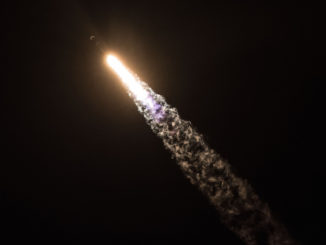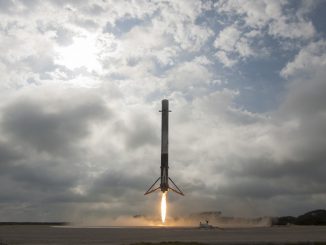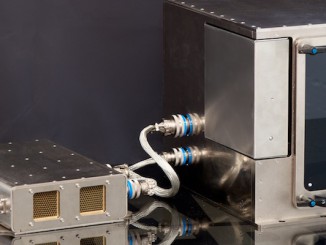EDITOR’S NOTE: Updated with orbital parameters.
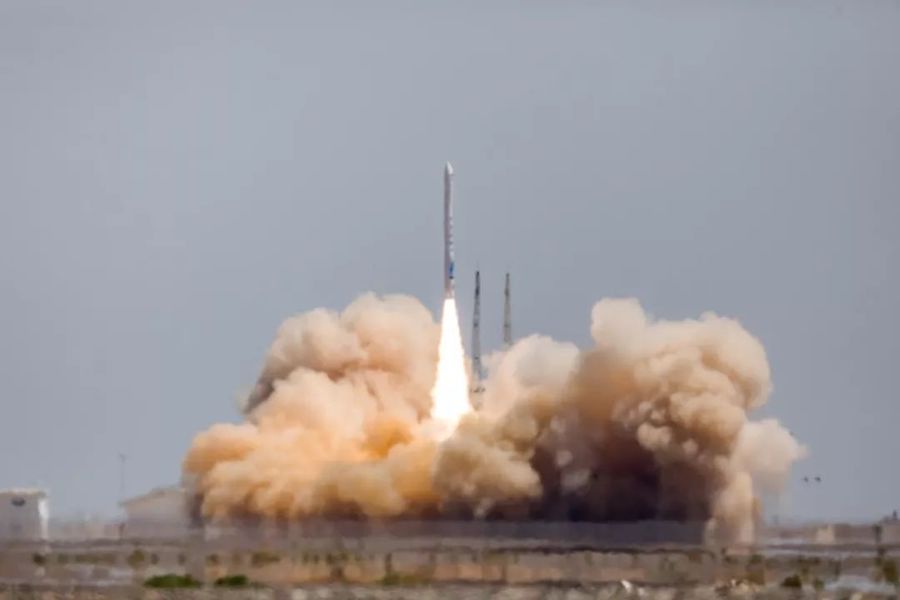
A startup company named i-Space became the first Chinese private firm to achieve orbit Thursday with a successful launch of a light-class Hyperbola 1 booster.
The Hyperbola 1 rocket carried several small satellites and payloads into an orbit approximately 186 miles (300 kilometers) above Earth, according to a statement released by Beijing Interstellar Glory Space Technology Ltd., more commonly known as i-Space.
China’s state-run Xinhua news agency confirmed the successful launch, which occurred at 0500 GMT (1 a.m. EDT) Thursday from the Jiuquan space base in northwestern China’s Inner Mongolia autonomous region.
Liftoff occurred at 1 p.m. Beijing time, and videos of the launch shared on Chinese social media platforms showed the four-stage Hyperbola 1 rocket rapidly climbing into a clear sky over Jiuquan.
Orbital tracking data published by the U.S. military published Thursday afternoon, U.S. time, showed an object attributed to the Hyperbola 1 launch in a nearly circular orbit at an altitude of around 180 miles (290 kilometers), with an inclination of 42.7 degrees to the equator.
The Hyperbola 1 rocket measures around 68 feet (20.8 meters) tall, with a maximum diameter of around 4.6 feet (1.4 meters), according to i-Space. The rocket’s takeoff weight is around 68,000 pounds, or 31 metric tons, with three lower stages burning pre-packed solid propellants, and a liquid-fueled upper stage for a final orbital injection maneuver.
Thursday’s mission was the first launch of the Hyperbola 1 rocket on an orbital flight, following test flights conducted by i-Space of precursor vehicles on suborbital trajectories.
The Hyperbola 1 rocket is capable of delivering up to 573 pounds (260 kilograms) of payload mass to a 310-mile-high (500-kilometer) sun-synchronous polar orbit, i-Space said.
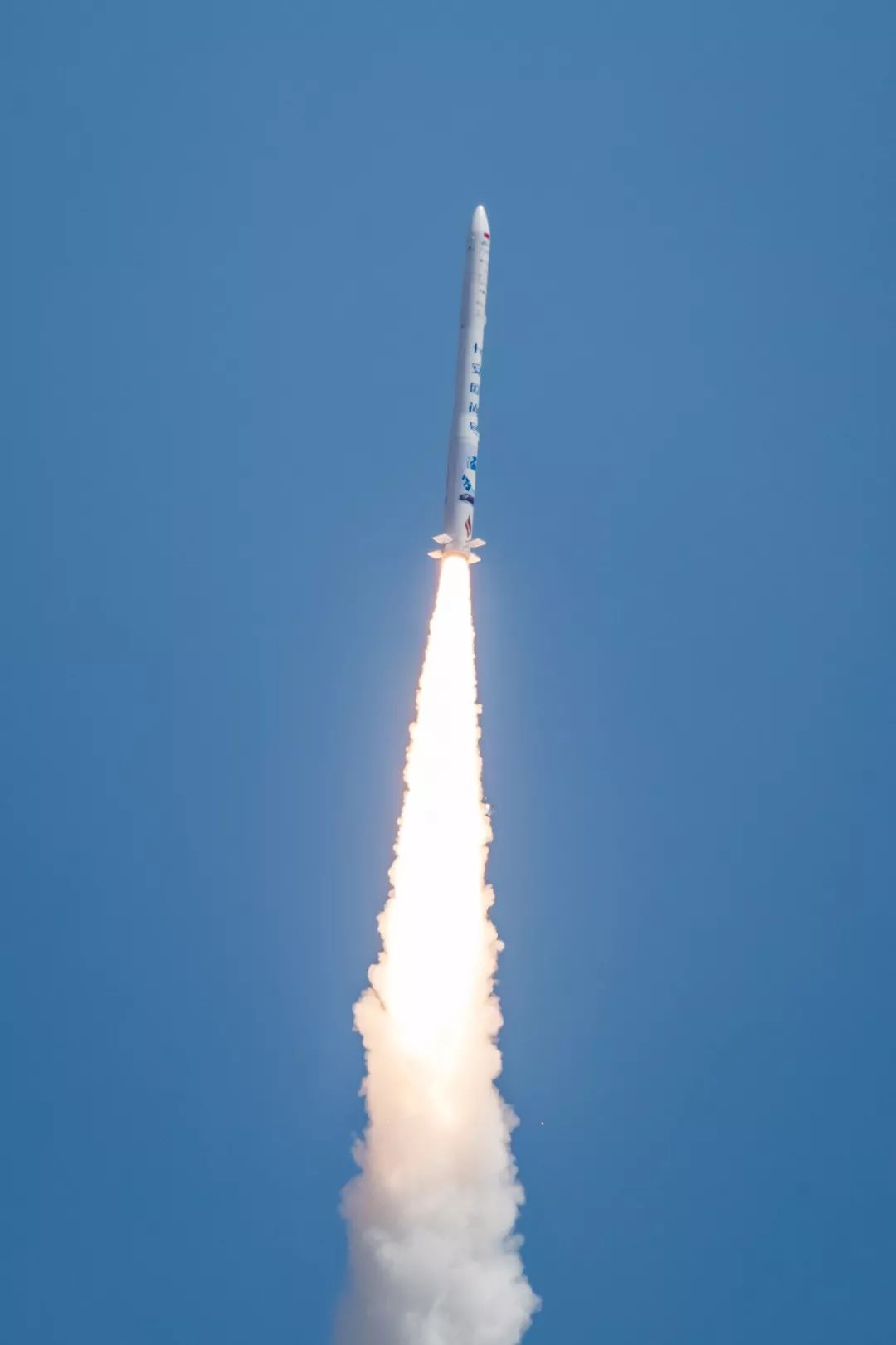
The satellites launched aboard the first Hyperbola 1 mission included the CAS 7B CubeSat, an amateur radio mission developed by the Beijing Institute of Technology. The Hyperbola 1 rocket also launched a satellite for Aerospace Science and Technology Space Engineering Development Co. Ltd., but i-Space did not release a name or description of the satellite.
The launcher also carried three other payloads, which may have been designed to remain attached to the Hyperbola 1’s upper stage. They included a payload for Watermelon Maker, a Chinese online education platform, a technology verification unit for China’s CCTV state-run television network, and a third payload named Star Age 6, whose owner and purpose were not disclosed.
According to i-Space, the Hyperbola 1 launch also delivered unspecified payloads to orbit for two Chinese wine and automobile companies, which sponsored the mission.
China’s commercial space sector has proliferated over the last few years since the country implemented space policy reforms under President Xi Jinping, allowing private capital to begin funding new satellite and launcher companies.
While there is significant private funding behind the new Chinese space companies, international observers say it is difficult to determine how much support the firms may continue to receive from the government. Western analysts believe companies like i-Space acquire their propulsion technology from the Chinese military’s missile programs.
China’s satellite and launch industries have traditionally been managed by state-owned organizations, which oversee spacecraft and launch vehicle design, production and operations. Those government-owned companies, led by the China Aerospace Science and Technology Corp., or CASC, remain major players in Chinese space activities, but startups have entered the fold to develop small satellites and mini-launchers, two of the most dynamic segments of the global space industry.
In a press release after Thursday’s launch, i-Space said it has a workforce of more than 120 employees. The company, which is financed by Chinese venture capital funds, said the launch “opened a new chapter in China’s private commercial aerospace (industry).”
In the post-launch statement, the Beijing-based launch company thanked CASC, which heads up China’s state-owned aerospace industry apparatus, China Aerospace Science and Industry Corp., and the Chinese government for their help and support.
By the end of 2020, i-Space said it expected to complete up to six Hyperbola 1 launches as the company’s engineers develop a more powerful follow-on vehicle named Hyperbola 2.
The Hyperbola 2 rocket could be ready for a debut launch in 2021. According to i-Space, the Hyperbola 2 rocket will be reusable, with its first and second stages driven by engine clusters fueled by methane and liquid oxygen.
Teams at i-Space recently completed a 200-second hotfire test of the methane-fueled engine for the Hyperbola 2 rocket, which will haul up to 2,400 pounds, or 1.1 metric tons, of payload to a polar sun-synchronous orbit.
After Hyperbola 2, i-Space has plans for a larger reusable rocket named Hyperbola 3, powered by reusable 100-ton-class (220,000-pound-thrust) methane-fueled engines.
Thursday’s successful launch by i-Space after two other startups in the budding Chinese private space industry fell short of orbit in their first attempts.
A company named OneSpace failed in an orbital launch attempt in March, and a rocket launched by another firm named LandSpace also faltered before reaching orbit last October.
Email the author.
Follow Stephen Clark on Twitter: @StephenClark1.

